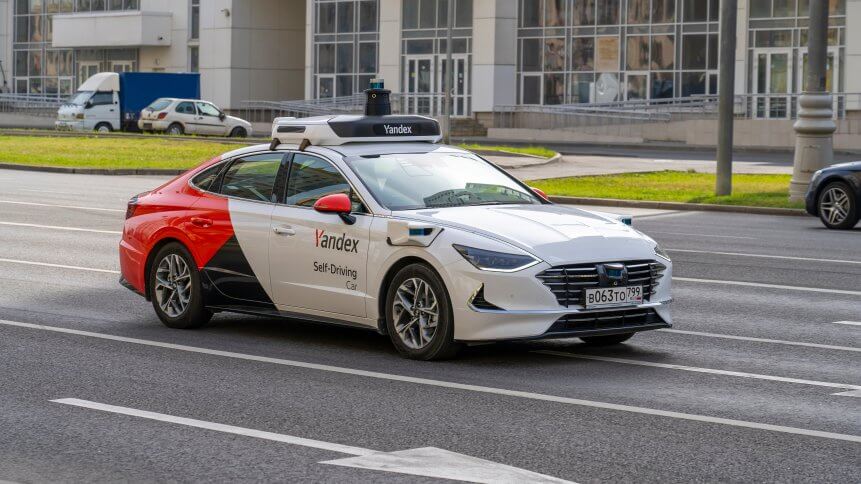
Russian technology conglomerate Yandex has halted its hardware testing in the US, namely its autonomous vehicles that were to be the backbone of its robotaxi fleet as well as a sidewalk robot delivery service.
This news comes as the Russian invasion of Ukraine spills into its second week, with Russia facing sanctions from numerous countries as well as service suspensions from multinational tech companies. Though Yandex is registered in the Netherlands, its main offices are located in Russia.
Having started working on self-driving vehicle technology in 2016, Yandex saw its first successful test in Moscow in 2017. Making its international debut at the Consumer Electrics Show in Las Vegas in 2019, Yandex offered the chance for people to ride in its fully autonomous vehicles on public roads.
2020 saw the company opening a tech center in Ann Arbor, Michigan where it had been conducting public road testing for its vehicles. At the same time, partnering with food delivery player GrubHub, Yandex launched a delivery pilot service using its six-wheeled sidewalk robots on the campuses of Ohio State University and the University of Arizona.
Missing out on promising autonomous vehicles market
The conflict between Ukraine and Russia, along with the resulting fallout on both nations’ economies, has led to adverse effects on any Russian organization that had ambitions to go international with their products and solutions, with Yandex another name on that list.
With global market intelligence company Transparency Market Research predicting that the global autonomous car market will reach about US$207 billion by 2031, pulling Yandex’s vehicle testing projects in the US could result in the loss of a large chunk of this market. This fallout would also affect Yandex’s opportunities at carving its own share of the global autonomous vehicle market as well, a market that is projected to hit a value of US$2 trillion by 2030.
As it stands, with cross-border financial transactions among the services denied to Russian companies and entities, Yandex may face trouble in the near future. The company has convertible notes on the New York Stock Exchange, which could lead to the company having to pay out in excess of US$1.25 billion to note-holders should those notes be redeemed, due to a trading suspension of more than five days — something already in effect due to a trade suspension order from the stock exchange.
From a press statement issued by the company, “the Yandex group as a whole does not currently have sufficient resources to redeem the notes in full. In the event that we were prevented from distributing additional funds from our Russian subsidiaries to our Dutch parent company, Yandex would not have sufficient resources to redeem a majority of the notes”.
What this means for other AV players
Furthermore, automakers in the US, Europe, and Asia have been earmarked as key players in the market moving forward, with the past few years showing a slew of research and development on on-road testing, which lays the foundation for autonomous vehicles to provide mobility as a service like the likes of Lyft and Uber.
Speaking of Uber, the international ride-sharing business has also hastened the divestment of its stake in Yandex, a transaction that started in August 2021. A spokesperson from Uber has shared that they are “actively looking for opportunities to accelerate the sale of our remaining holdings”. In the meantime, Uber will also be removing three executives from the board of their joint venture with Yandex, Yandex.Taxi.










